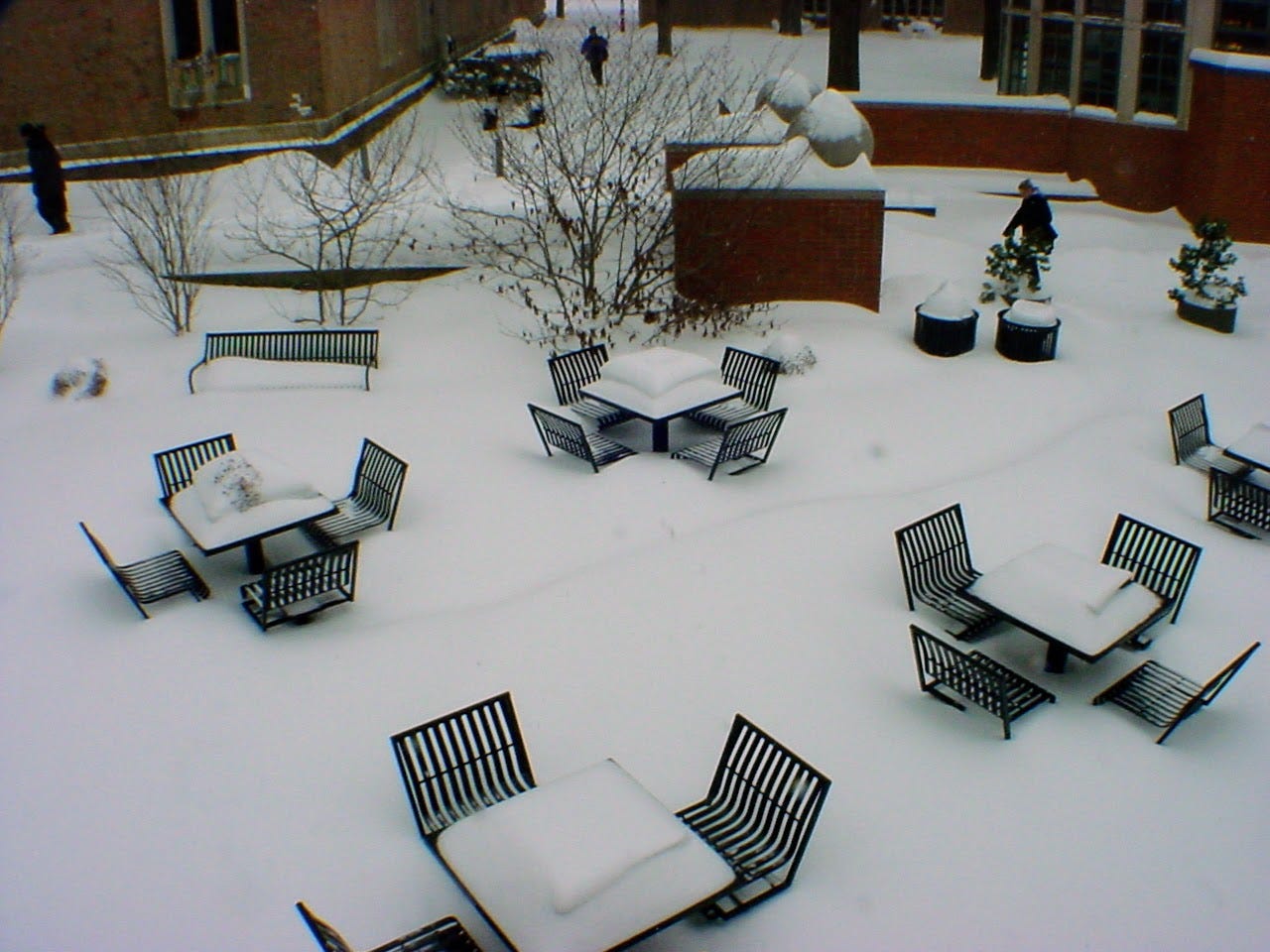Dichotomies I
Tolstoy as Educator
This post is one in a series which will explore the principles of Neither/Nor, in this case that two opposed but complementary ways of knowing are reason and intuition. Listen here for background.
When I was eighteen years old, and a sophomore of still undeclared major at Princeton, I can vividly remember being alone one evening, at the desk next to the bunk bed in my dorm room, and realizing that if I died that night in my sleep, then I would have lived without ever having read War and Peace.

Where I got the idea that I needed to read War and Peace before I died, I do not know; perhaps one of my high school English teachers had been responsible. I do not think I could then have named Lev Nikolayevich Tolstoy, known in English as “Leo,” as its author with complete certainty. But I remember freezing in my seat, as that fear of incompleteness seized me, alone and out of place in my stuffy little room, looking out over a frigid New Jersey landscape, some 2,400 miles from the sun of California where I had been born and raised.
I made, a moment or two after the fear struck me to stillness, a decision that I would read Tolstoy’s work come hell or high water. That fear, though it was alleviated by reading, has reappeared in different guises in the years since — even after having read the book a few times, and after having written my undergraduate thesis on its genesis in Thackeray’s Vanity Fair. But that’s getting ahead.

The fear led me to enroll, the following spring, in Caryl Emerson's forbiddingly-titled “Leo Tolstoy, War and Peace, and the Tasks of Literature.” Emerson had a reputation on campus as a phenomenal professor, and a reputation off campus for her translations of Mikhail Bakhtin’s work. She is an instructor of incredible kindness and verve, and she has lived a remarkable life. She visited the Soviet Union dozens of times from the 1950s, beginning when she was 11. She taught Slavic studies at Princeton for 27 years. I remember her being slight, fiery, and fiercely intelligent. I liked her immediately. The class was unforgettable and affected the whole trajectory of my life. It was in that class that I began on the path that I am now on, and from which I now write.
I had begun university in 2002 with an interest in philosophy, but the Philosophy Department had done its damnedest to nip that in the bud. Or at least I knew, after a handful of classes, that I could not major in Philosophy. In my first semester, I was deeply disillusioned by Philosophy 101, "Introduction to Logic." I loathed and still loathe logic, even though I somehow still did reasonably well in the class. I could see no point to its circumlocutions, which neither answered nor attempted to answer any of the questions which had originally interested me in philosophy.
I had first encountered Western philosophy at the end of high school. It had been introduced to me by an extremely eccentric priest, Father Mike, in a brief overview I’d had at a California Catholic school, whose pretensions towards more antiquated modes of education in this case served me. Sometimes, when we entered the class, he would remain entirely silent and play jazz standards, then give detentions to anyone who spoke over the music. At other times, after some silence, he would begin a dilatory but riveting lecture. “Plato…” he would say, loudly and slowly, punctuating each thought which followed with a long pause, and often repeating himself.
Though Father Mike introduced me to questions of ontology and epistemology in a rudimentary way, my questions had always been about the meaning of life, and how best to live it. I had an intuitive sense that most of the answers I sought would be paradoxical — and paradox is something that logic (for reasons all its own) endeavors to forbid. I’m grateful to Father Mike, for at least giving me the hint that philosophy was not, in spite of the final analysis of the analytic tradition, about logic at all. Or at the very least that its origins antedated logic.
I am grateful, too, to that lowly Logic class, which instilled in me the visceral antipathy which I still feel for the Law of the Excluded Middle, an antipathy which still animates my work today. I can remember nothing from the Logic class but an annoying bit of software, used to do the logical proofs for homework, and a sinking feeling in my gut. It sickened me. It was this feeling of animosity which led me in my subsequent years at Princeton to veer away from analytic philosophy, and towards Taoism — and towards Tolstoy — though, of course, I could not have known that at the time.
Tolstoi has given the simplest answer, with the words: ‘Science is meaningless because it gives no answer to our question, the only question important for us: “What shall we do and how shall we live?”’ That science does not give an answer to this is indisputable. The only question that remains is the sense in which science gives ‘no’ answer, and whether or not science might yet be of some use to the one who puts the question correctly.
— Max Weber, “Science as Vocation” (1917)
This period was, in many ways, the starting place of Neither/Nor. Or to put it another way, that was the beginning of my twenty year investigation into what education is, where it has come from, and what its effects are on perception, cognition, and action.
I am only now recognizing that many apparent dichotomies arose for me then. Science and the humanities; language and experience; reason and intuition. But the one I’ll discuss next time is The Hedgehog and the Fox.



Loved this!